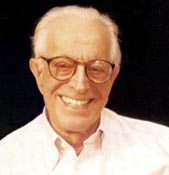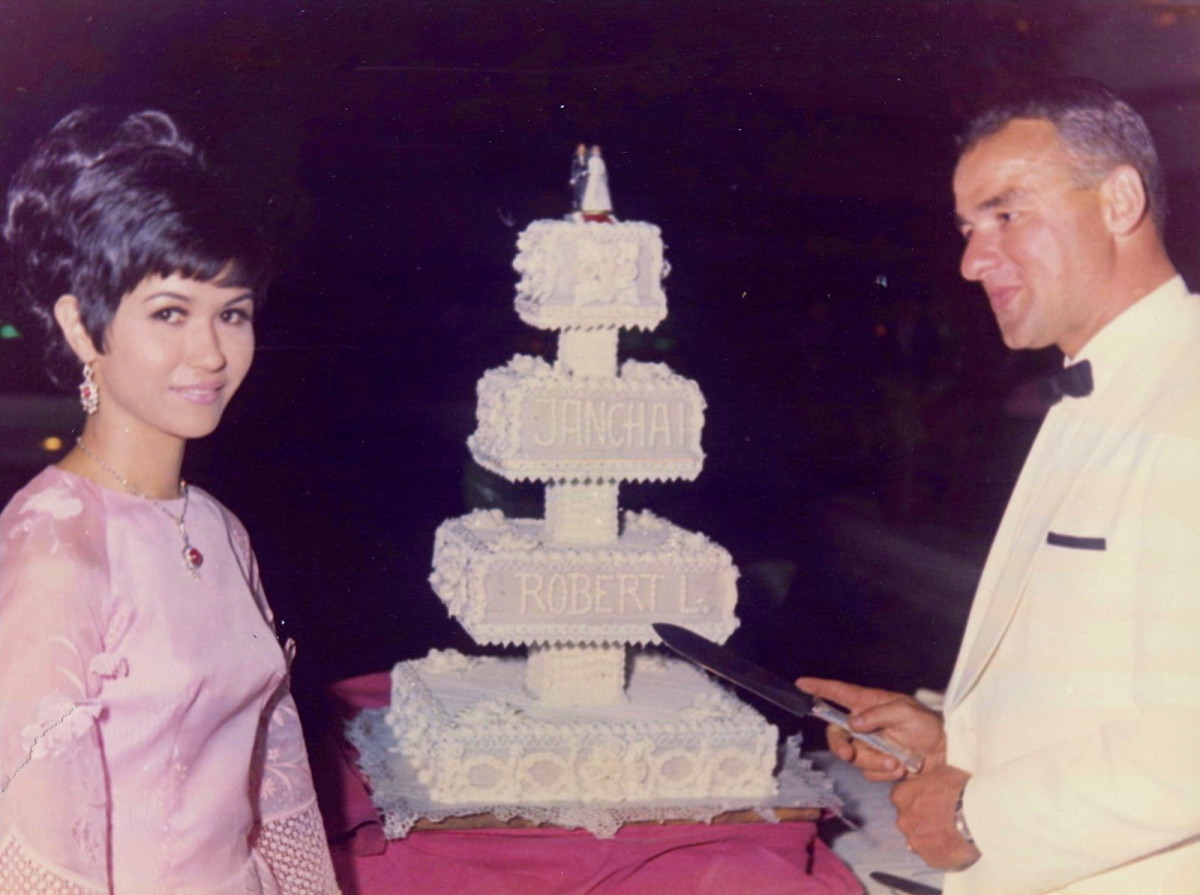- HubPages»
- Health»
- Mental Health»
- Emotions
Seeking happiness? Dr. Albert Ellis' way is STILL the best
The late Dr. Albert Ellis

On July 24, 2007, the earth profoundly moved. On that day, Dr. Albert Ellis, died. Ellis was the psychology pioneer who arguably made possible the immense impact of such subsequent workers in human happiness (in the Aristotelian sense) as Dr. Wayne Dyer, the Secret folks, Ram Dass, and a handful of others working to get people to add one plus one and get two, rather than adding one plus one and getting “poor me.”
But his concepts still live, and they still work.
Ellis' rational emotive-therapy can be boiled down to a few simple but cogent thoughts:
- Your parents are crazy. Forget virtually every nutty (and often contradictory) thing they ever told you.
- You are driving yourself nuts; no one else is. Especially your parents if you are an adult, and if you accept 1, above.
- You can “musterbate” all you want, but things are what they are.
- You can also “awfulize,” but in the end, it is what it is and no amount of handwringing will help.
I learned those thoughts, and more, at the master’s knee, quite literally.
Back in the 1970s, my husband at the time was a regional bureau chief for a division of Dow-Jones/Ottaway newspapers. The Mid-Hudson Psychiatric Association hosted a talk by Dr. Albert Ellis in Poughkeepsie, NY. That husband had, through a shrink he saw in Atlanta after he returned home after dropping out of Duke and meeting Tom Hayden and other facets of the anti-war years, been “turned on” as we said then to Albert Ellis. We had his books in the house. Needless to say, I was interested to see what this man who had turned my once-hippie husband into an aggressive, successful journalist had to say.
Amazingly enough, when Dr. Ellis asked for a volunteer to demonstrate rational emotive therapy, not a single member of that illustrious group volunteered.
My husband nudged me. I really did not―DID NOT―want to sit up on that stage as a guinea pig. I was a journalist also, but not working for that news organization, so there was no conflict of interest, as there would have been if my husband had volunteered. The only conflict was the one in my mind.
However, duty called, and duty ruled. So up on stage I went. And thereby began a relationship with Albert Ellis that lasted very nearly until his death. When he won an award in about 2004 or so, I sent him an email, thanking him for all his help over the years. He wrote back and asked my permission to use my words in marketing for his own work. Of course I agreed. And of course I was thrilled that he remembered me as I had not seen him in person since the mid-1980s.
***
In the late seventies, we had moved to New York City, and things were tough. Two journalists trying to make ends meet in Manhattan, even then, was a demanding trick. We did it, but at the end of the two years of building our reputations, I was worn out. I didn’t want to work so hard anymore. I thought I might be going nuts. We got back from a trip to Ireland, a half-working trip so it would virtually pay for itself, and all I wanted to do was go away again. Without a camera or a carry-on full of reporter’s notebooks.
Finally, I broke down and called Dr. Ellis’s place, the Institute for Rational Emotive-Therapy as it was then called (now the Albert Ellis Institute), in the old Roosevelt houses on the East Side.
The sixty bucks an hour I spent for about six or seven sessions was money well spent.
What did he tell me?
First, I was unlikely to become a bag lady, as I feared, if our freelance income ever took a serious dive. It was, he said, schizophrenics who mainly lived under Grand Central Station, pushed carts of debris around the streets, spat at certain people walking by…and wore winter clothes in summer, summer clothes in winter and felt no pain. Was I schizophrenic? No. Case closed.
Second, so what would be so awful if I let my husband carry the financial load for a while? I had, after all, been the point man on the whole thing, while he brought in a paycheck. Only after I had built up the business―endured the rejections and the search for potential clients and the continual nattering at publishers to actually send the promised check―did he quit his job and join me. So, what would be so bad if I took a rest from the constant barrage of potential rejection and dunning publishers for payment? Seemed sort of normal in those terms. Ah. Sigh of relief.
Third, my parents were crazy. It had been unreasonable to berate a child who got straight As in school just because that child wanted a different career for herself than they wanted for her. Blah, blah, blah. I didn’t do what they wanted (teach) nor what I wanted (act.) But it had worked out all right. Still….
But that realization did lead to something good later, and something bad as well, though transitory.
My nephew was having a horrible time in school; one of his teachers consistently berated him and made him feel an idiot. His grades went from As to Cs. He was eleven years old, and about to spend two weeks with us at Christmas. Naturally, his auntie booked an appointment with the pre-teen specialist at IRET to have him checked out. Conclusion? Smart boy, but upset, still, over his parents’ divorce several years earlier.
My nephew needed no more. We told him the results, and that, plus whatever the good doctor had said to him, enabled him to put that teacher literally in her place. His grades returned to normal, and all was well. Except that my brother was enormously angry with me for doing it; he was not the custodial parent, and I had asked my nephew’s mother, and she had agreed. So, my brother was angry. So what. In an Aristotelian sense, I had done that which created happiness for me (and everyone else, in this case), if not joy.
I had learned in college about Aristotelian happiness; from Dr. Ellis, I learned now to actually make it work in a world inundated with what I call the Hallmark Way of Life…dopey sentiments meant to make people act sloppily and feel smarmy without getting frequent doses of maudlin thoughts, meant to help people avoid the demanding road that leads to happiness in favor of the easy one that leads to temporary satisfaction but long-term dis-ease.
Years passed, and eventually, as I had so profoundly feared, a downturn in our financial fortunes came to pass.
Had I truly learned the lessons of Dr. Ellis, and my subsequent readings of Wayne Dyer, I would have known that of course the disaster I feared would come to pass; even the Bible (which I regard as fairy tales) makes, I think, some passing reference to what one greatly fears coming to pass. On the other hand, research shows that 99 percent or more of what we worry about doesn’t. And of course, that proved itself, too. It wasn’t the fear of financial ruin that vexed me; it was the spectre of embarrassment. AHA! And so, back to Dr. Ellis for a refresher course. And no, embarrassment wouldn’t kill me. And I was “awfulizing.” And “musterbating,” as in “I must not fail.” And it was about time I cut the crap.
Enough said.
Over the years, my husband and I sought a session or two with Dr. Ellis, just as refreshers. And frankly, that’s all it ever took. The true magic of getting it about rational emotive therapy is that once the basis is there, a few words from the wise suffice. Anyone might forget to be rational from time to time, but any decent RET therapist can make quick work of getting one over the perceived hump without the patient spending several years and thousands of dollars parsing every miserable second of one’s early life with one’s crazy parents.
***
At one point, we were in Key West and found a t-shirt that said, “Sex therapist; First lesson free.” We immediately bought one for Dr. Ellis and sent it to him. A bright red one. We got a note back saying he would wear it at the next erudite convention he was obliged to attend, and I’m sure he did just that.
Whenever we saw him, he reclined in a sort of extended Eames chair with one shoe off, his eyes closed as often as not as he told us which crap to cut at the moment.
I loved that man. I truly did. The earth moved out from under my feet the day I learned he had died. There are some intellects that, when their energies are removed from our living sphere, seem to be felt in their absence. Maybe it’s quantum physics. Maybe it’s beyond quantum physics; maybe it’s muons, those out-there particles responsible for both matter and black holes alternately.
I have no idea. All I know is that when Albert Ellis told one to cut the crap, one absolutely knew that is precisely what one needed to do, both for the here and now and for the eventual assessment of Aristotelian happiness for one’s life.
If one had a brain, one did exactly as Dr. Albert Ellis told one to do. If not…See numbers 1 through 4, above.









